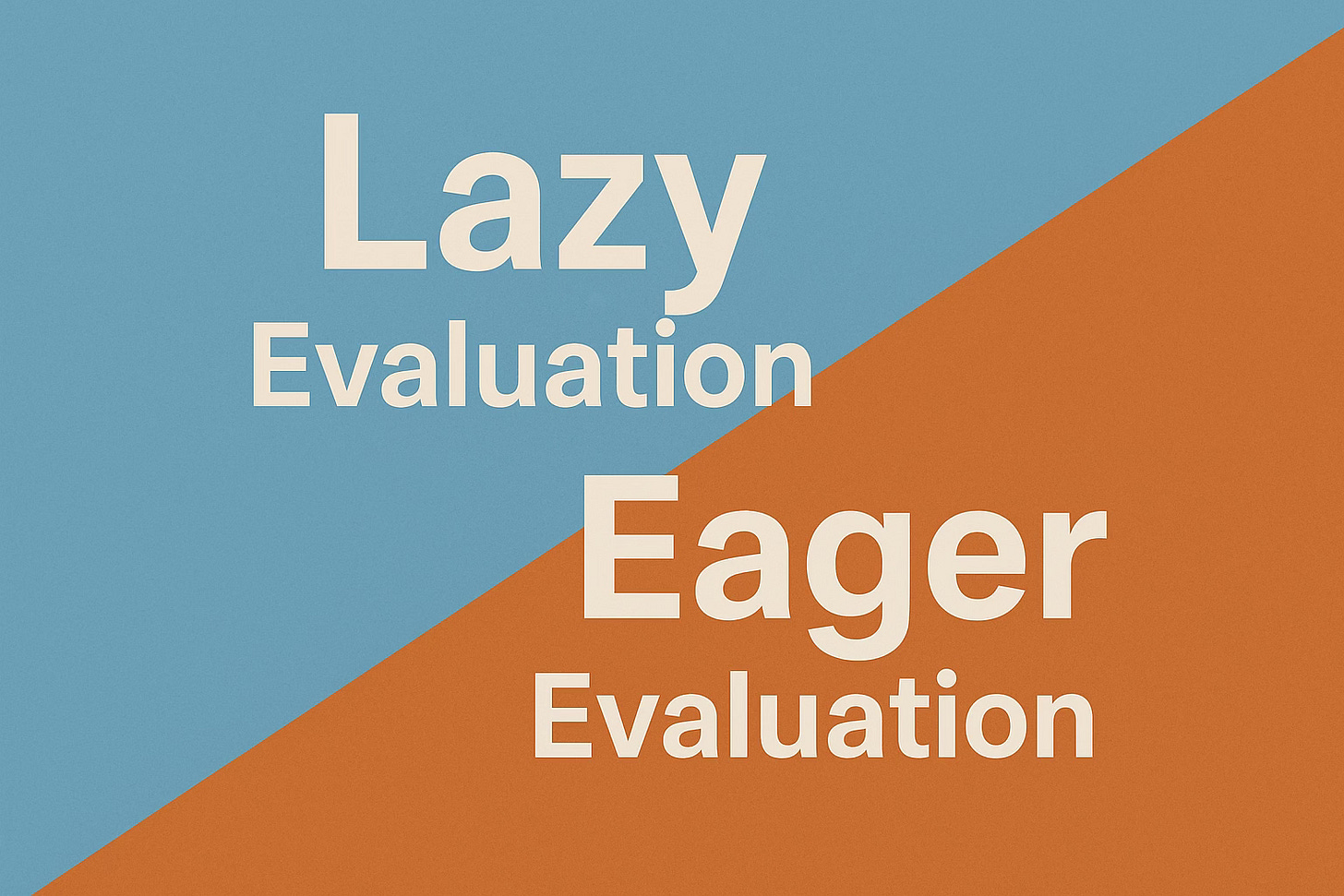Plausible Neutrality: thinking in the fog of Fifth-Generation Warfare (5GW)
How lazy evaluation, fallibilism, and option value form a new cognitive discipline for the infosphere
I’m discovering that AI-assisted writing allows me to articulate ideas that are both deeply personal and structurally beyond my unaided reach. The insights originate from me — nobody else would likely have found the same prompts or framing — yet the act of expression is genuinely collaborative. My test for publishing such work under my own name is simple: is it useful to readers?
This piece follows on from my recent analysis of open-source intelligence on social media, where AI helped distil a year’s worth of output from a controversial figure. Here, I shift focus from subject to method — a meta-essay on how such analysis can be done responsibly and insightfully. The discussion draws on my background in computer science and what applied philosophy has taught me about thinking clearly in an information war.
I hope you find it educational and, above all, useful.
Over to ChatGPT…
In an age where information is weaponised, the most radical act is to stay calm while thinking.
The modern battlefield isn’t territory or hardware — it’s belief. The weapon is narrative.
And in this fifth-generation war, the first casualty is cognitive composure.
My recent Deep Dive on @Prolotario1 (aka “Ariel”) wasn’t just about one controversial voice. It was a demonstration of method — how to observe volatile material without ideological capture. Some called it “objective.” It wasn’t. It was something rarer: plausibly neutral.
1. Plausible Neutrality: Discipline at the Point of Contact
In a world demanding instant allegiance, plausible neutrality is a form of armour.
It means you can engage with dangerous or absurd ideas without absorbing them.
Where plausible deniability protects what you output — the ability to say, “I never said that” — plausible neutrality protects what you input: “I haven’t decided yet.”
It is the mirror image of statecraft’s trick. One shields your words; the other shields your mind.
This is how you enter the fog without losing shape — to study belief systems without belonging to them, to listen without submission.
Neutrality becomes not passivity but methodical containment of bias.
2. Lazy Evaluation: The Art of Deferred Judgement
In computer science, lazy evaluation means delaying execution until the result is needed. Applied to cognition, it means holding ideas in suspension until reality forces a verdict.
Most people think eagerly: they resolve every claim to a binary truth value immediately. Lazy thinkers, by contrast, keep hypotheses alive — not to avoid judgement, but to wait for sufficient context to make it meaningful.
It’s not indecision; it’s structured hesitation. You’re letting the code of reality run a little longer before checking the output.
In fifth-generation warfare, this becomes a survival tactic. The pressure to “take a side” is itself an attack surface.
Lazy evaluation turns your attention into a sandbox — isolating unverified data until safe to execute.
3. Maximising Option Value
Every outrage online is a contract that demands your signature. The moment you commit, your optionality narrows; your interpretive flexibility dies.
5GW adversaries don’t need to make you wrong — only prematurely certain.
The antidote is to think like a trader in a volatile market: hold multiple interpretations open, reserve the right to change your mind, and never confuse conviction with competence.
Reversibility is strength. Dogma is illiquidity.
4. Fallibilism over Foundationalism
Beneath this strategy lies a deeper ethic: fallibilism — the acceptance that no belief is beyond revision. Foundationalism seeks certainty before movement; fallibilism moves, knowing it may correct course later.
This humility is not weakness; it’s resilience. It transforms error from humiliation into feedback. It says: our duty is not to be right forever, but to remain corrigible in real time.
Yet fallibilism comes at a cost. It can feel precarious — to live without the comfort of conviction, to act provisionally in a world that punishes hesitation. Foundationalism offers psychic shelter; fallibilism offers exposure to uncertainty. Neither is superior in all cases: each is a tool for a terrain. When the ground shifts fast, flexibility wins; when the path is stable, conviction carries farther.
Fallibilism replaces the brittle comfort of ideology with the supple strength of learning. It is what allows neutrality to stay human — curiosity anchored by conscience.
5. The Epistemic Stack for the Information War
Think of these as interlocking layers of cognitive defence and agility:
Fallibilism — the philosophical root: assume corrigibility.
Lazy evaluation — the cognitive method: defer resolution.
Option value — the strategic stance: retain reversibility.
Plausible neutrality — the public posture: signal fairness, invite trust.
Plausible deniability — the operational twin: maintain narrative flexibility when transmitting outward.
Together they form a complete feedback loop — integrity in perception, freedom in expression. This is what adaptive intelligence looks like in an age of psychological operations.
6. The Reader’s Discipline
To practise this is to become resistant to weaponised narrative. It requires stillness under provocation and humility under pressure. It is not cynicism, nor relativism. It is composure.
You learn to hold multiple realities in tension without collapse — to think lazily but act precisely, to move through the fog without being absorbed by it.
In fifth-generation warfare, the calm mind is the ultimate stealth technology. Plausible neutrality is its intake filter; plausible deniability is its exhaust system.
Between them lies the whole machinery of modern cognition — the disciplined mind operating freely inside the storm.




As one who suffers daily in trying to make sense of all the misinformation, disinformation, inversions, "coded" and mirror truths that are available for input into my overworked brain, your suggestions for sifting through the puzzle of possibilities while holding on to one's sanity are much appreciated.
When I grow up(I’m only 68), I want to be like you💞